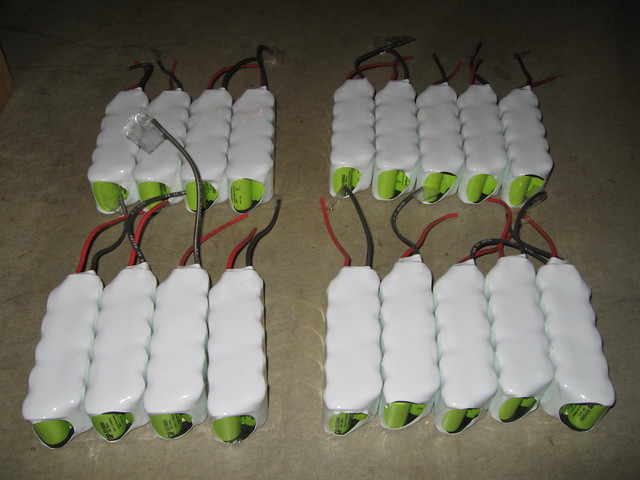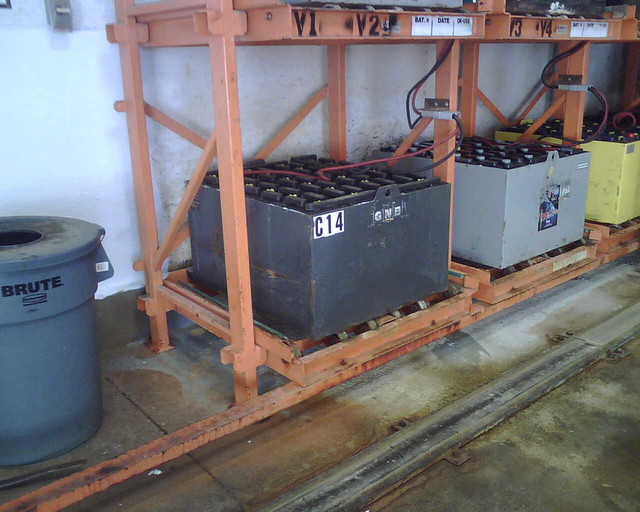How to fix a lipo battery with one weak cell?
Jun 20, 2019 Pageview:3362
lithium polymer battery, also called lipo battery, is a standard battery which is a part of several electronic devices these days. They are especially popular in the radio control industry since long. Nowadays, it is replacing other batteries like Nickel Cadmium battery and is taking over the industry due to their higher power and long battery life. A lipo battery provides you a durable service life. It has the capacity of retaining an excellent power of 300 cycles. Moreover, it also offers an amperage output without rupturing the battery.
Additionally, a good lipo battery also has an extremely low internal resistance, which means that you will need to charge the battery immediately after use. Not only this, but a good lipo battery offers a service of over four years if you take good care of it.
Thus, this battery has tons of benefits; however, just like any other product, this battery also comes with few issues.
If you are planning on getting this battery, you need to gather enough information about its strengths and weaknesses. So, lets just quickly go through the pros and cons before we move ahead.
Pros:
· Light in weight as compared to other batteries
· Greater capacity
· Excellent discharge rate
Cons:
· Very weak lifespan
· Highly inflammable
· Needs precautions while recharging
How do you know whether the lipo battery can be fixed?
There are some signs which are an indicator that your lipo battery is still good to go and can be fixed. Look for these signs and take extra care of your batteries.
· If your batteries aren't puffy or bulgy, then that is a clear indication that they can be fixed. An over-puffy battery has no chances or recovery, and the damaged with such batteries has been done already. So, don’t waste your time with such batteries.
· If you notice only one cell of your lipo battery puffy, then that is also an indicator that your battery can be fixed simply by replacing the weak cell with a good one. We’ll also take you through the method of replacing your weak cell with a good one.
Common problems of lipo battery
Since this battery contains lithium-ion which is prone to catching fire and causing blast, therefore, it comes with numerous problems. Some of which are as follows:
· Lipo battery has high chances of exploding. Quite often they catch fire, may burn your skin or even damage your eyes if you are working without protective glasses. There are many cases where a damaged lipo battery burnt down the vehicles and houses and even radio-controlled airplanes.
· Short-circuiting is a very common problem associated with lipo batteries.
· Another common problem with the lipo batteries is their leakage. Due to leakage, they can easily react with water. Since water is a good conductor of electricity, so this leakage can cause ignition.
· Lipo batteries have a common problem of lagging and stopping while working. The reason behind this issue is its quick discharge. This problem is associated with the weak lifespan of these batteries. You will need to fix them frequently by charging them.
· You also need to be careful with lipo batteries as they tend to become extremely hot at times. This issue normally arises when the batteries are charged or discharged. Thus, the temperature becomes abnormally increases and sometimes even cause serious damage to the device. If you regularly experience a hot battery, you must take precautionary measures to replace it, or it can result in a short circuit.
· If you ever experience your battery getting puffy, you should immediately dispose of it as it is a clear signal that the battery is about to explode.
· Lipo batteries are commonly known by the name "chemical fire." It means that you should avoid getting them in contact with any chemicals like gasoline oil or even water. They are quick to react, and the outcomes are hazardous.
· Overcharging your lipo battery can also damage it. Thus, you need to extra careful if you are using this battery.
· Another major problem with this battery is that they need a properly adjusted temperate such as room temperature which doesn't cause you to sweat. Moreover, an extremely cold temperature is also not suitable for it. These batteries won't work in extremely cold temperature. Therefore, keep in mind that your lipo battery must be placed at a normal temperature. This issue is a greater restriction for you if you are dealing with this battery.
· If you want to use lipo batteries, you will need to keep special chargers. You cannot charge them with a normal charger like your phone or car charger.
How to fix a lipo battery with one weak cell properly?
Although lipo batteries have a much shorter lifecycle and they degrade very quickly, it is possible to fix them! So, instead of just wasting or throwing away your battery, it is best to fix it and save your money.
If you learn how to fix your lipo battery with one weak cell properly, then you can keep using your battery for years without any serious problem.
· Before you attempt to fix your battery, understand that it comes with potential risks and can be highly dangerous. Therefore, you must have the proper gear like protective glasses and gloves. Moreover, you must deal with it outdoors.
· To fix your battery, first of all, remove the packaging from its exterior. It usually comes in a plastic package which is easy to remove with the help of a wire cutter.
· Next comes the trickiest part of untying the working cells from the damaged cells. You can apply some little heat to detach the cells because they are attached with a sticky epoxy resin. To determine if your cell is damaged or not, you can make use of a multimeter.
· Now replace the weak cell with a new cell in its place and wired back the terminals in such a sequence that the positive part of cell combines with the negative part of the other cell.
· The last step is the fusing of wires. You need to take extreme precautions here by setting a low temperature and being very quick with the process. Otherwise, you may experience a fire.
Don’t forget to keep an eye on the voltage of both the plug and the discharge connector.
- Prev Article: How to open a lithium battery?
- Next Article: Lithium gel battery introduction
Leave Message
Hottest Categories
-
Hottest Industry News
-
Latest Industry News











